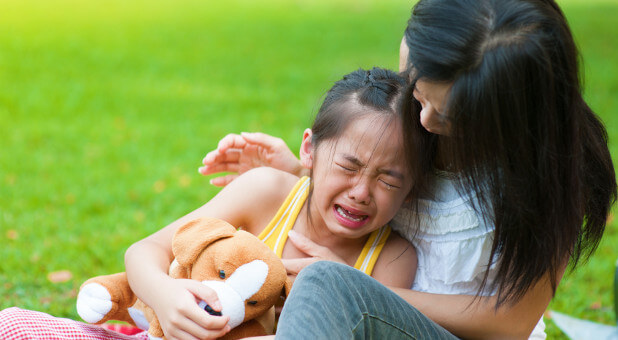Teaching children how to grieve is important for their emotional health. Parents might consider this sensitive part of a child’s life when a loved one dies, but what happens when your son loses the soccer championship or your daughter is left out of the slumber party? Those are also significant opportunities to help your children learn to process their emotions.
The child who’s disappointed because he can’t go camping on the weekend may have a hard time releasing that desire. In fact, he may react in anger to everyone around, forcing you to exert some discipline. In your firmness, look for ways to acknowledge the loss and to comfort him in the process.
You might say, “I know you’re angry because you’re disappointed that you can’t go on the camping trip, but the way you’re handling your disappointment is wrong. I’m sorry you’re feeling bad, and maybe I can help you with that, but not while you’re being hurtful to others. So, you’re going to have to go sit in the hall and think about this before you come back and talk to me some more.”
Grief is the emotional tool God placed in our hearts to enable us to release things we value. For some, that’s more difficult than for others. If you say to your son, “Stop crying like a baby,” you miss an opportunity to teach him about grieving.
Whether reacting to a deep loss or a minor disappointment, it’s important for children to learn how to process grief so they can release the pain of their loss instead of carrying it around as a burden.
This parenting tip comes from the book Parenting is Heart Work by Dr. Scott Turansky and Joanne Miller, RN, BSN.































































